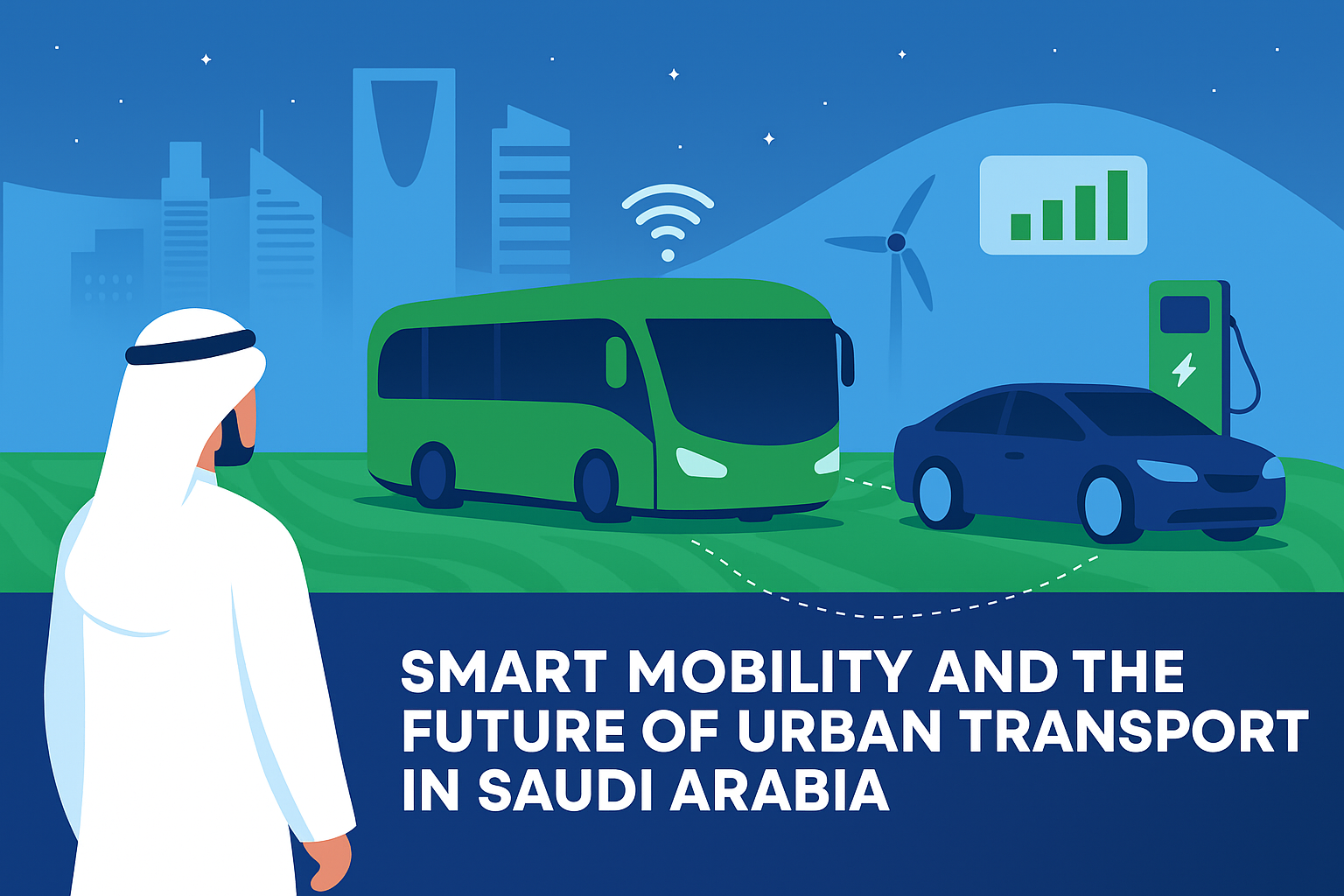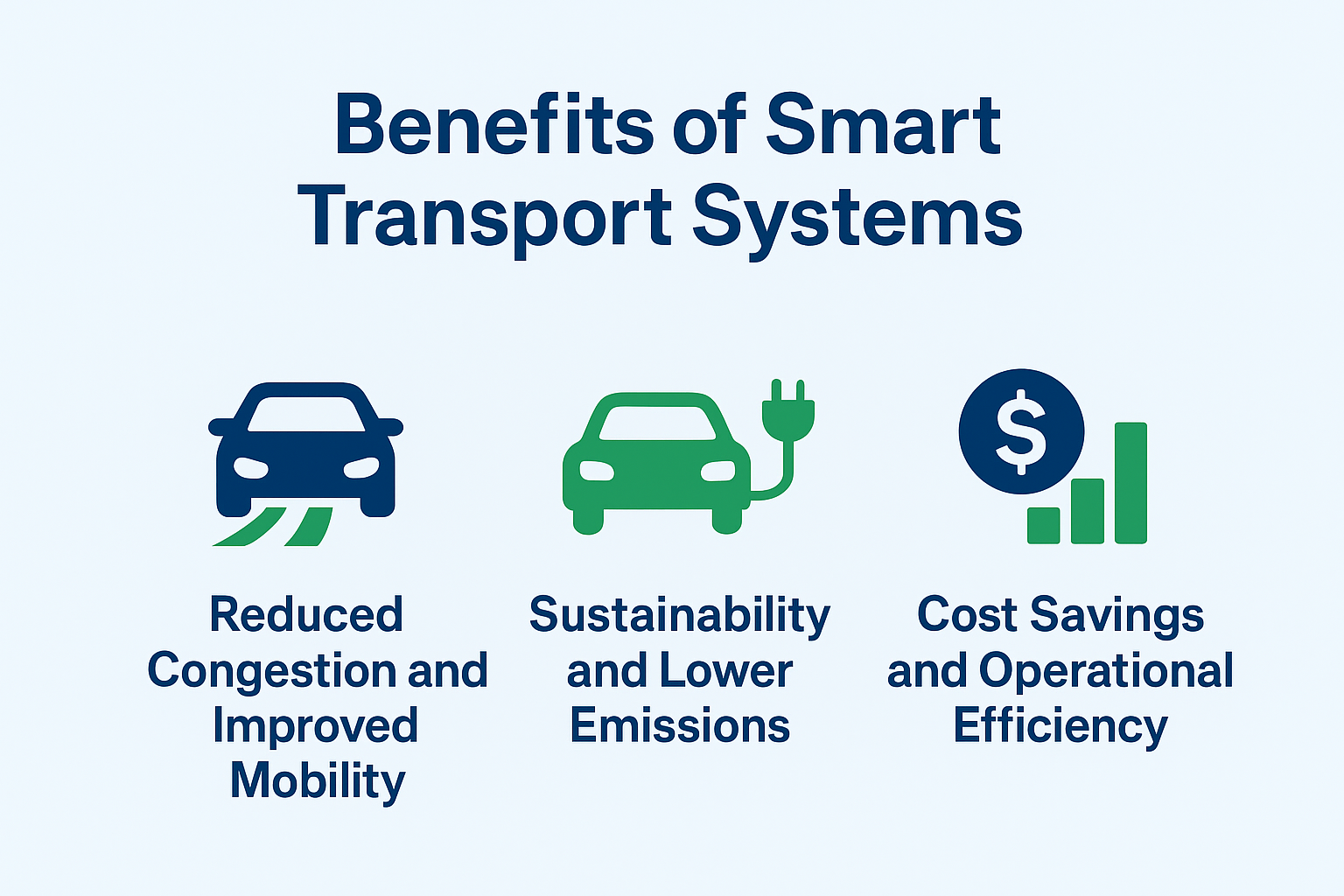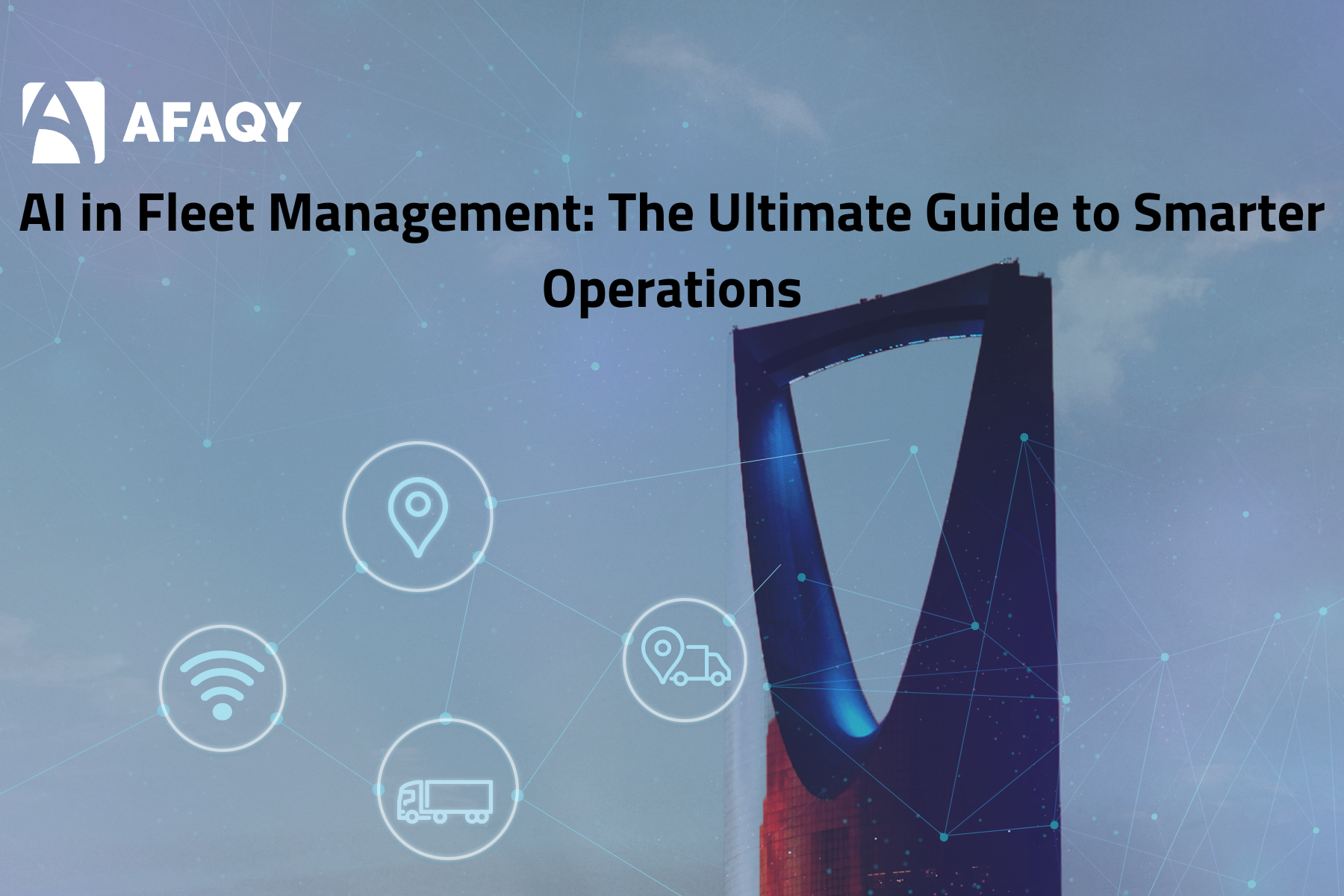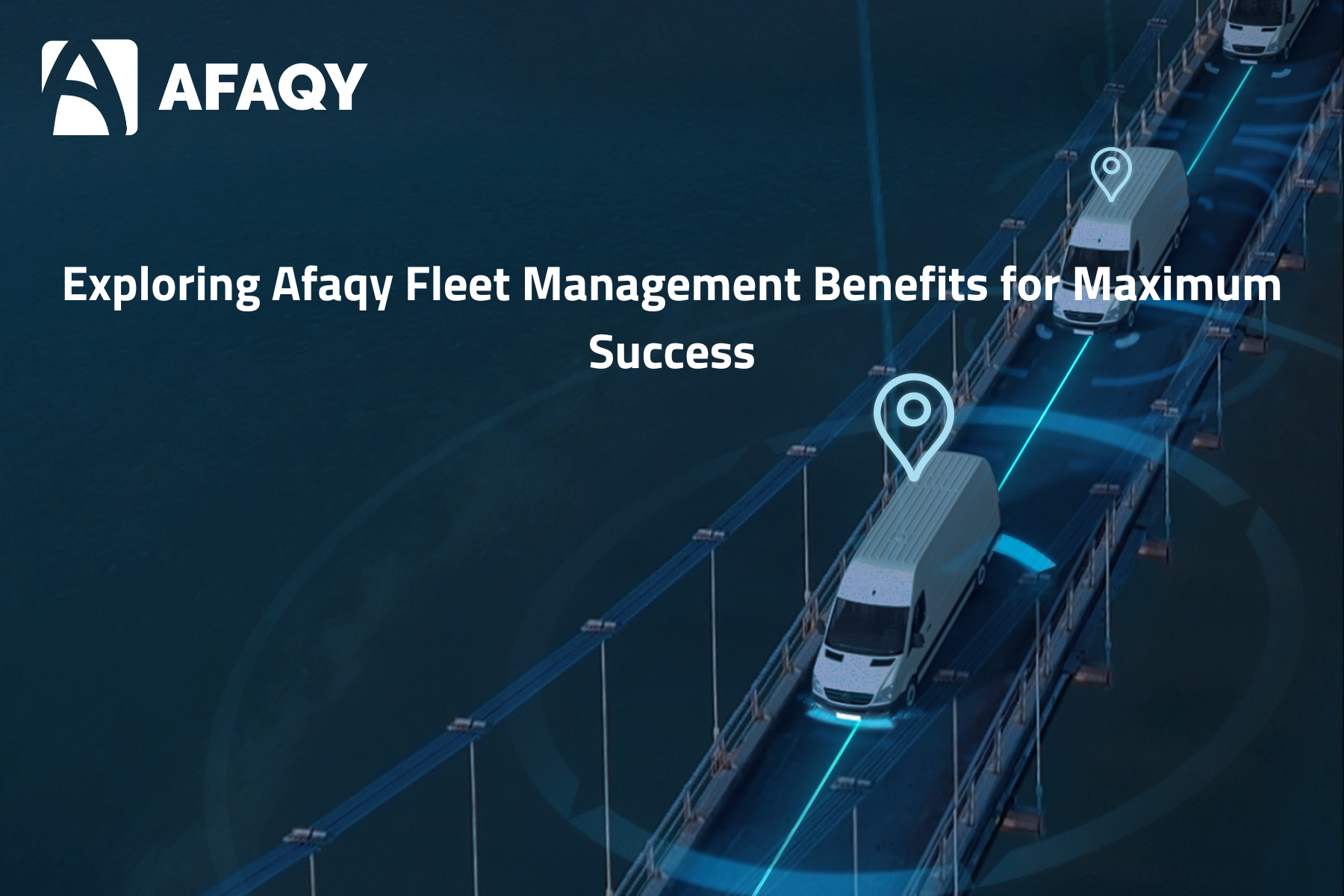Smart Mobility in Riyadh and the Future of Sustainable City Living
.png)
Smart Mobility in Riyadh and the Future of Sustainable City Living
Driven by the ambitious goals of its Vision 2030, the Kingdom of Saudi Arabia is taking important strides towards a more sustainable, smarter, and safer future. One of its important initiatives is adopting the smart mobility approach to enhance urban transportation, quality of life, and position itself as a leader in global mobility solutions.
A study has revealed that 77.8% of Saudis are willing to use smart mobility solutions for better and more sustainable urban transport. Smart mobility involves integrating AI and IoT technologies, electric vehicles, automation, and data analytics to create a smarter, user-friendly, and more connected transportation ecosystem.
What are the key initiatives, projects, and technologies taken by the kingdom to embrace smart mobility? And how is AFAQY aligning with this vision to support Saudi Arabia’s journey toward a more sustainable future? In this blog, we’ll dive into these efforts in detail, so keep reading to discover more.
Table of Contents
· Smart Mobility and the Future of Urban Transport in Saudi Arabia
· Key Initiatives, Technologies, and Projects Adopted to Enhance Urban Transportation
· What Are the Benefits of Smart City Transport Systems?
· How AFAQY is Powering Smart Mobility in Saudi Arabia
Smart Mobility and the Future of Urban Transport in Saudi Arabia

Saudi Arabia is undergoing one of the most ambitious transformations in urban development, and at the heart of this shift is smart mobility.
With Vision 2030 setting a clear path toward sustainable growth, the Kingdom is investing heavily in innovative transport systems that will redefine the way people and businesses move within cities.
For businesses and decision-makers, this is more than just a government initiative, it’s an opportunity to align with a future-ready ecosystem that prioritizes efficiency, connectivity, and sustainability.
Smart mobility solutions such as integrated public transit, autonomous vehicles, data-driven traffic management, and electric mobility are not only reducing congestion, emissions, and enhancing road safety, but also creating new opportunities for private sector partnerships and investments.
In Riyadh, projects like the Riyadh Metro, the largest public transport project of its kind, are laying the foundation for a modern, interconnected city. This shift is not just about infrastructure but also about fostering an innovation-driven economy where transport systems are powered by technology, artificial intelligence, and clean energy.
For companies, adapting to this mobility revolution means more than compliance; it positions them as key contributors to a smarter, greener Saudi Arabia and places them as tech leaders in the Saudi competitive marketplace.
Whether through developing sustainable logistics, investing in EV infrastructure, or leveraging data-driven urban solutions, the private sector has a critical role in shaping the future of urban transport.
As the Kingdom advances toward its Vision 2030 objectives, businesses that embrace smart mobility will gain a competitive edge, driving operational efficiency, attracting global partnerships, and contributing to a more livable, sustainable urban environment.
Key Initiatives, Technologies, and Projects Adopted to Enhance Urban Transportation
In pursuit of its vision towards a safer, efficient, and more sustainable future, the kingdom has gone a long way. From equipping cities with intelligent and AI-driven infrastructures to providing public transportation with state-of-the-art technological solutions, the Saudi urban living truly undergoes a remarkable progress.
Let’s highlight some of the key initiatives, projects, or technologies adopted by the kingdom to align with the goals of its vision 2030:
Riyadh Metro
At the center of Saudi Arabia’s mobility transformation stands the Riyadh Metro, one of the largest public transport projects in the world.
With six lines covering 176 kilometers and more than 80 stations, the Metro is designed to dramatically reduce traffic congestion, lower carbon emissions, and provide businesses and citizens with a fast, reliable alternative to private vehicles.
It is also equipped with automatic electrification, Wi-Fi services, LED lighting, and surveillance cameras for more seamless and safer mobility experience.
NEOM
NEOM, the Kingdom’s flagship megacity, is redefining the concept of urban mobility. Designed as a car-free, fully sustainable environment, NEOM integrates autonomous shuttles, shared mobility services, and advanced public transit powered by renewable energy.
Its most ambitious project, The Line, a visionary “vertical city” designed to stretch 170 kilometers across desert valleys, mountains, and the Red Sea, reimagining urban living for future generations.
Unlike traditional cities, The Line will operate with zero cars, roads, or carbon emissions, running entirely on renewable energy and featuring high-speed transit connecting its ends in about 20 minutes.
Smart Traffic Management Systems
The Kingdom is adopting data-driven traffic control systems that use AI, IoT, and predictive analytics to manage traffic flows in real time. These technologies are aimed at reducing delays, cutting fuel consumption, and enhancing road safety, creating more predictable and efficient urban logistics networks.
Electric Vehicles
In 2023, the Public Investment Fund (PIF) and Saudi Electricity Company (SEC) announced the launch of the Electric Vehicle Infrastructure Company. The main goal of the company is to deliver first-rate electric vehicles across the kingdom. It plans to establish presence in more than 1,000 locations and install more than 5,000 fast chargers by 2030.
The Saudi EV market was valued at USD 2,343.7 million in 2024 and is expected to reach USD 15,821.7 million by 2030, driven by Vision 2030 policies and massive government investments through the Public Investment Fund (PIF).
Wasl Platform
One of the Kingdom’s projects is the WASL platform, a national digital solution that connects and monitors transportation in real time. By linking trucks, drivers and freight companies through GPS tracking and telematics, WASL increases transparency, improves logistics and ensures compliance with safety regulations.
This reduces operational risks and streamlines supply chains, giving businesses insights to optimize their fleet. As part of Saudi Arabia’s smart mobility ecosystem, WASL works with projects like the Riyadh Metro and Saher to make transportation safer, smarter and more sustainable according to Vision 2030.
What Are the Benefits of Smart City Transport Systems?
Smart city transport systems are not just about moving people and goods more efficiently, they are about reshaping the way cities function, improving quality of life, and enabling businesses to thrive in a digitally connected economy. In Saudi Arabia, these systems are central to realizing Vision 2030’s ambitions for sustainability, innovation, and economic diversification.
Let’s spotlight some of the benefits of using smart transport systems in Saudi Arabia:
Reduced Congestion and Improved Mobility
By integrating advanced traffic management systems, public transit networks like the Riyadh Metro, and platforms such as WASL, smart mobility ensures smoother flows of people and goods. This reduces time lost in traffic, increases workforce productivity, and lowers logistics costs for businesses.
Sustainability and Lower Emissions
Smart transport prioritizes clean energy solutions such as electric mobility, autonomous vehicles, and integrated public transit. This directly supports Saudi Arabia’s sustainability agenda, lowering carbon emissions while helping businesses align with ESG goals and global green standards.
Cost Savings and Operational Efficiency
Digital platforms provide real-time data insights, helping companies optimize fleet management, reduce fuel consumption, and cut maintenance costs. Over time, these efficiencies translate into significant financial benefits for both public and private stakeholders.

How AFAQY is Powering Smart Mobility in Saudi Arabia
Since its founding in 2005, AFAQY has emerged as a leading solutions provider in the IoT, fleet management, and smart transportation space, providing both hardware and software innovations that align closely with Saudi Arabia’s Vision 2030 mobility goals.
· Real-Time Fleet & Asset Tracking: AFAQY’s Automatic Vehicle Location systems (like Buraq Pro) allow companies to monitor vehicle locations, driver behavior, and fuel usage in real time. This improves operational visibility and lets fleet operators react swiftly to delays, optimize routing, and reduce idle time.
· Smart Vehicle & Connected Fleet Solutions: With connected-vehicle platforms, integrated sensors (for fuel, weight, etc.), and driver behaviour monitoring, AFAQY helps firms maintain safer, more efficient fleets.
· Smart City / Smart Businesses Platforms & IoT Infrastructure: AFAQY doesn’t just work with vehicles. Our solutions extend to smart city initiatives, business operations, and full logistics visibility. This supports the broader infrastructure needed for integrated smart mobility.
· Scalability & Localized Experience: At AFAQY, we help numerous clients across sectors achieve operational efficiency and reduce costs. This means solutions are not one-size-fits-all but are adapted for Saudi climate, traffic patterns, regulatory needs, etc.
· Wasl Integration: We integrate our solutions with Wasl platform to help businesses stay compliant with the kingdom’s mobility rules and regulations.
· Supporting Vision 2030 Outcomes: Because our technologies address key mobility challenges such as traffic delays, safety, emissions, inefficient logistics, AFAQY directly contributes to the strategic priorities in Vision 2030 including sustainable cities, greener transport, and enhanced quality of life.
Collaborate with AFAQY today to leverage real-time data, optimize logistics, and adopt cutting-edge mobility solutions that ensure your business stays ahead in an ever-evolving marketplace!
FAQs
1. How is Riyadh improving urban transport?
Riyadh is modernizing transport through projects like the Riyadh Metro, using smart traffic management systems, and integrated public transit, all designed to reduce congestion, cut emissions, and improve connectivity.
2. What is smart mobility in Saudi Arabia?
Smart mobility in Saudi Arabia refers to the use of advanced technologies such as AI, IoT, electric vehicles, and digital platforms to create safer, more efficient, and sustainable transport systems in line with Vision 2030.
3. How will Vision 2030 impact transport in KSA?
Vision 2030 is driving massive investments in sustainable mobility, including public transport, electric vehicles, and smart infrastructure, transforming KSA’s cities into globally competitive, future-ready hubs.
4. What role does IoT play in urban mobility?
IoT enables real-time monitoring and connectivity across vehicles, infrastructure, and logistics, helping optimize traffic flows, improve safety, reduce costs, and support data-driven decision-making.
References
1. PIF and Saudi Electricity Company Announce the Launch of the Electric Vehicle Infrastructure Company. (n.d.).https://www.pif.gov.sa/en/news-and-insights/press-releases/2023/pif-and-saudi-electricity-company-announce-the-launch-of-the-electric-vehicle-infrastructure-company/
2. Saudi Arabia Electric Vehicle Market Size & Outlook, 2030. (2025, May 30). https://www.grandviewresearch.com/horizon/outlook/electric-vehicle-market/saudi-arabia
3. Alanazi, F. (2023). Development of smart mobility infrastructure in Saudi Arabia: A Benchmarking approach. ideas.repec.org. https://ideas.repec.org/a/gam/jsusta/v15y2023i4p3158-d1062877.html
4. Alotaibi, A., Almasoudi, A., & Alqurashi, A. (2025). Investigation of the impact of smart mobility solutions on urban transportation efficiency in Saudi Arabian Cities. Deleted Journal. https://doi.org/10.1007/s43995-025-00114-3



































.png)

.png)

